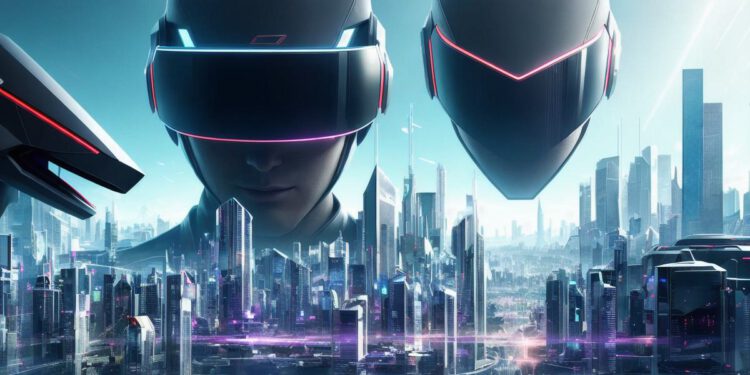Introduction:
As technology continues to advance, so do games. In this article, we’ll explore what games will be like in 10 years and how they will continue to evolve. We’ll also examine the impact that virtual reality, augmented reality, artificial intelligence, and other emerging technologies will have on gaming.
Virtual Reality:
One of the most significant developments in gaming in recent years has been virtual reality (VR). VR allows gamers to immerse themselves in a game like never before, experiencing it as if they were actually there. In 10 years, we can expect VR technology to be even more advanced, allowing for even more realistic and immersive gaming experiences. For example, VR could allow gamers to explore entire virtual worlds, interact with characters in ways previously impossible, and experience emotions that were once reserved for movies and television shows.
Augmented Reality:
Another technology that will have a big impact on gaming in the coming years is augmented reality (AR). AR allows games to be overlaid onto the real world, turning everyday environments into virtual playgrounds. For example, gamers could use their smartphones to turn their living room into a virtual battlefield or explore hidden treasures in their city using AR technology. In 10 years, we can expect AR technology to become even more sophisticated, allowing for even more seamless integration of games into our daily lives.
Artificial Intelligence:
Artificial intelligence (AI) is also set to have a big impact on gaming in the coming years. AI allows game characters and environments to behave in ways that were previously impossible, making for more realistic and engaging experiences. In 10 years, we can expect AI technology to be even more advanced, allowing for more sophisticated and unpredictable behavior from game characters and environments. This will create more dynamic and interactive gaming experiences that keep players engaged for longer periods of time.
Emerging Technologies:
Other emerging technologies, such as blockchain, quantum computing, and 5G networks, will also have a big impact on gaming in the coming years. For example, blockchain technology could be used to create secure and transparent in-game transactions, while quantum computing could be used to create more complex and realistic game AI. 5G networks could also allow for faster and smoother gaming experiences, making it possible to play games with players from around the world in real-time.
Conclusion:
In conclusion, the future of gaming is bright, with virtual reality, augmented reality, artificial intelligence, and other emerging technologies set to revolutionize the way we play games. In 10 years, we can expect games to be even more immersive, engaging, and dynamic than they are today. Whether you’re a casual gamer or a hardcore enthusiast, there’s no doubt that the future of gaming is something to look forward to.
FAQs:
Q: What will virtual reality technology look like in 10 years?
A: Virtual reality technology in 10 years will be even more advanced, allowing for more realistic and immersive gaming experiences.
Q: How will augmented reality technology impact gaming?
A: Augmented reality technology will allow games to be overlaid onto the real world, turning everyday environments into virtual playgrounds.
Q: What role will artificial intelligence play in gaming?
A: Artificial intelligence will allow game characters and environments to behave in ways that were previously impossible, making for more realistic and engaging experiences.







